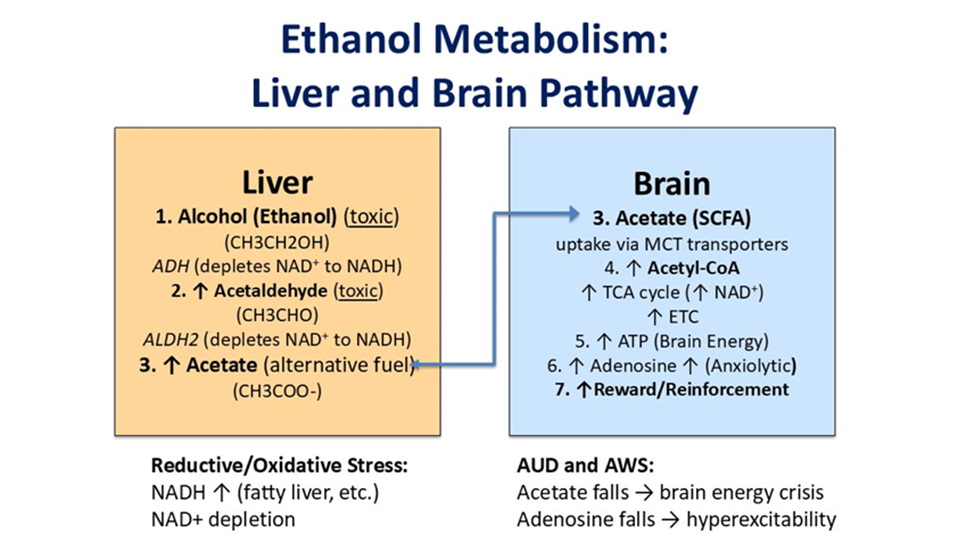Advantages
- Mechanistic Innovation: stabilizes brain energy metabolism and modulates adenosine signaling mechanisms not targeted by current addiction therapies.
- Targeted Brain Delivery: formulations enable effective acetate transport across the blood-brain barrier, (BBB)
- Controlled and sustained release
- Versatile Administration Routes: compatible with oral, intravenous, transdermal, intranasal, and enteral delivery
Summary
Alcohol Use Disorder (AUD) is characterized by impaired brain energy metabolism. Elevated systemic acetate levels, a byproduct of ethanol metabolism in the liver, causes the brain to shift towards reliance on acetate rather than glucose as a preferred energy source. Upon abrupt cessation of alcohol intake, brain acetate levels drop, triggering neurological stress, cravings, and cognitive disturbances associated with withdrawal. This contributes to the severity of withdrawal symptoms and increases the risk of relapse. Current treatment strategies for AUD largely overlook the brain’s altered metabolic state, leaving a critical unmet need for therapies that address the neuroenergetic consequences of alcohol cessation.
Our researchers have developed a novel therapeutic approach using supplemental acetate and chemically advanced acetate-based derivatives to stabilize brain metabolism during alcohol withdrawal and support long-term recovery.
The formulations include buffered acetate salts, lipophilic acetate esters, and amino acid conjugates; paired with advanced delivery strategies. These compounds are engineered to enable controlled release, enhanced bioavailability, and targeted tissue uptake, including effective delivery across the blood-brain barrier (BBB).
This innovation represents a paradigm shift in addiction treatment, transforming acetate from a metabolic byproduct into a targeted therapeutic agent. Its chemical novelty, delivery flexibility, and broad-spectrum applicability position it for pharmaceutical development across addiction, neurology, psychiatry, and metabolic health.

Systemic effects of Alcohol and Alcohol-induced Acetate production on the Liver and Brain.
Desired Partnerships
- License
- Sponsored Research
- Co-Development